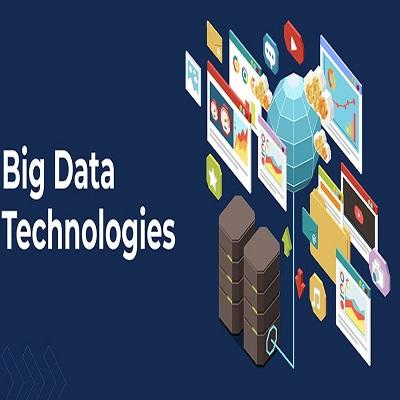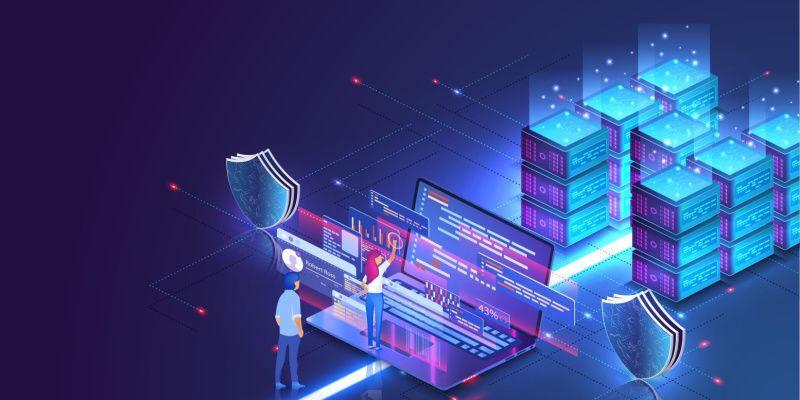Articles
Big Data Technology Market Navigating Dynamics Comprehensive Analysis and Forecasts 2032
Market Research Forecast published a new research publication on “Big Data Technology Market Insights, to 2032” with 232 pages and enriched with self-explained Tables and charts in presentable format. In the Study you will find new evolving Trends, Drivers, Restraints, Opportunities generated by targeting market associated stakeholders. The growth of the Big Data Technology market was mainly driven by the increasing R&D spending across the world.


The Next Big Data Leap: How AI Is Reshaping Data And Analytics Roles
As we approach the halfway point in 2024, we can look back and see that the past eighteen months have brought a massive shift in the field of data and analytics, especially due to AI.
The substantial investments in AI startups and the global data analytics market are indicative of what’s to come; venture capitalists injected $42.5 billion into AI startups last year, according to CB Insights, cited by the Financial Times.
Database management enters a new era of complexity
Increasing complexity, the rapid adoption of emerging technologies and a growing skills gap are the biggest concerns facing IT leaders in 2024, according to Redgate.
30% of development teams now deploy database changes to production in a day or less, up by 50% from just two years ago. Further complicating the scenario, the survey showed that 79% of IT teams are now using more than one database platform, with 29% of respondents using more than five.


The 5 V’s of Big Data – how can they benefit businesses?
Big data can be defined as the management and analysis of large amounts of data. This data exceeds the limits and capacities of conventional software and, for this reason, the use of advanced technological infrastructures is necessary. The objective of this tool is to transform the thousands of data generated by devices connected to the internet into useful and easy to handle information, in order to make decisions in real time. Moreover, this technology is a great business opportunity for companies. Mainly, organisations exploit this innovation to understand the needs of their customers and adapt their services and products.
Benefits of a Database Administrator for Holistic IT Environments
When the DBA combines security with efficiency, the IT environment can operate at its cleanest. Should a ransomware attack occur, the DBA is fully prepared to address any ad-hoc issues and eliminate unauthorized points of access because of the setup of the system and the protocols around database operations. In the event of a data leak, data compromise or ransomware attack, recovery and resolution are essential aspects of maintaining the IT environment. This is so that cohesion between application programmers, developers, IT management and the DBA themselves can remain intact.


10 Database Security Best Practices You Should Know
Database security measures are a bit different from network security practices. The former involves physical steps, software solutions and even educating your employees. However, it’s equally important to protect your site to minimize the potential attack vectors that cyber criminals could exploit. Let’s look at 10 database security best practices that can help you to bolster your sensitive data’s safety.
15 Essential Features Your Database Management System Should Have
A database management system can help teams create databases and keep critical information organized in a central repository. However, to make the most of the system, it’s critical that organizations choose software that will meet their specific needs. If you’re searching for a new database management system but aren’t sure where to begin, it can help to get some expert insights on what to look for. To that end, a panel of Forbes Technology Council members shared 15 essential features your system should have and why this is such an important factor when implementing and using your new tool.


The Role Of Database Virtualization In Helping To Prepare Organizations For Economic Downturns
In a recent survey by The Conference Board, the majority of CEOs globally stated they are expecting a recession. The shape and depth of that downturn may still be subject to discussion, but many large enterprises have already shifted into high gear to cut costs wherever they can—and database virtualization could be one of their sharpest tools. Cloud databases can offer flexibility that lets IT react quickly to flagging market demands and can result in cost savings when the economy contracts, yet they make sure the enterprise is ready to scale quickly when the markets recover.
5 reasons why your business needs a good database
If your business is growing and you have staff to help you run it, keeping track of the increasing amount of data can be tricky. Good database systems can help you manage all your business-critical data centrally, safely and securely – whenever you need it – to boost your chances of success. Using an HR database to manage staff records can save you time and money. It can streamline most of the HR tasks, automate routine jobs and speed up the processing of data such as staff hours, leave, benefits, payroll, etc. This can leave you more time to focus on growing your business.


Artificial Intelligence for Small Business
AI can even make your small business accounting easier. AI tools exist to answer questions about your accounting data, so you don’t have to go digging through spreadsheets. AI analytics tools can help you better understand the data being generated by your website. These tools can answer common questions about your website data, find insights that humans miss, and even build conversion models for you to better attract new customers. Today, AI has made great strides in being able to generate natural language that sounds like a human wrote it. As a result, there are dozens of AI tools that can write short-form and long-form content for you, including posts, product descriptions, and social posts.
